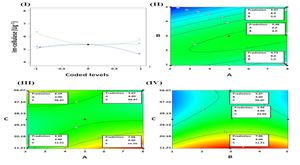Taiwan's political scene has become increasingly polarized as rival factions launch ambitious recall bids against each other's lawmakers. The recent escalation follows the opposition's controversial budget cuts, igniting tempers among governmental leaders who are committed to unseatin g their political enemies. At the same time, Taiwan's government has banned agencies from utilizing the Chinese AI technology DeepSeek, citing significant national security dangers.
The tensions reached fever pitch after the opposition-dominated legislature approved reductions to the national budget totaling NT$2.9 trillion (US$88.2 billion). This drastic decision eliminated NT$207.5 billion—approximately 7% of the original proposal—and also froze another NT$160.7 billion in spending. Officials from the ruling party expressed deep concern over the detrimental impact these cuts may have on government operations.
High-ranking officials including Lai Ching-te, Taiwan's Premier, and Cho Jung-tai, his cabinet chief, voiced their worries about the potential disruption these budget cuts could initiate. They have pledged to seek immediate legislative review of the financial reductions when work resumes on Monday. “It’s imperative to protect the integrity of our government operations,” expressed Lai during a press briefing, reinforcing the sentiment shared among current administration officials.
The opposition's maneuvers did not go unnoticed; Ker Chien-ming, the legislative caucus whip for the ruling Democratic Progressive Party (DPP), has been vocal about initiating mass recall efforts against their competing lawmakers. This proposed strategy could see both parties locking horns more fiercely as accusations of negligence and political mismanagement intensify, pushing the island’s internal divisions to the forefront of public discourse.
Both the government and opposition are digging their heels in as they prepare for heightened political warfare. This rivalry now threatens to escalate as more stringent recall campaigns could be unleashed following the return to work on Monday, potentially shaking the political stability of Taiwan even more.
Meanwhile, the Taiwanese government has taken concrete action to safeguard its national information security, highlighted by the announcement made by the Ministry of Digital Affairs just last Friday. The ministry declared the prohibition of DeepSeek's use among government agencies, emphasizing the inherent risks associated with the Chinese AI firm's operations.
The statement read: “Public sector workers, as well as facilities deemed as part of our nation’s infrastructure, should refrain from utilizing DeepSeek. Its operation involves transnational data transmission and raises serious concerns about information leaks, thereby endangering national information security.” The ministry's action reflects Taiwan’s prudence amid broader geopolitical tensions with China.
This move against DeepSeek came on the heels of the technology's recent introduction to the market, as it presented its R1 model, which reportedly boasts reasoning capabilities akin to those of leading US offerings, such as OpenAI's models, but at significantly lower operational costs. The launch sent ripples through international markets, sparking immediate caution among various governments.
While Taiwan’s ban may directly affect its governmental operations, it appears to be part of a larger pattern of scrutiny aimed at DeepSeek. Similar actions have been reported globally, highlighting concerns around the company's handling of personal data. Italy recently barred access to the DeepSeek app, and reportedly began investigations after unsatisfactory responses from the company on how it handles private data. The outcomes of these inquiries are likely to set precedents for data security legislation across Europe.
Elsewhere, other nations are also sounding the alarm on the potential dangers posed by DeepSeek. Ireland’s Data Protection Commission has sought information from the Chinese AI lab concerning its processing of Irish users' data, closely monitoring compliance with local regulations. Meanwhile, UK’s AI minister Feryal Clark issued advisories to British users, emphasizing personal responsibility when using DeepSeek technology.
All these actions—both political and technological—underscore heightened sensitivities around security and national integrity for Taiwan. The competition between rival political forces, combined with the scrutiny over tech regulations, forms a complex web of challenges for the island nation as its leaders navigate the intricacies of safeguarding democracy and sovereignty.
These developments compel observers to closely monitor Taiwan's domestic political scene and its digital frontiers as the impacts of internal strife and international pressures converge. The outcome of legislative recalls and the potential fallout from regulatory actions against DeepSeek could reshape the political and social fabric of Taiwan for years to come.



